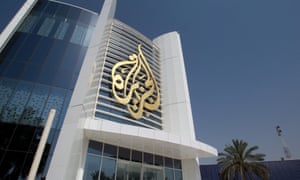Saudi Arabia and its Gulf allies have sanctioned a dozen organisations and 59 people it accuses of links to Islamist militancy – a number of them Qataris or with links to Qatar – escalating the diplomatic crisis in the region.
The publication of the sanctions list comes amid increasing efforts by Saudi Arabia, the United Arab Emirates, Egypt and Bahrain to diplomatically and physically isolate the tiny but wealthy Gulf state of Qatar, which has been subjected to a series of co-ordinated measures in the past five days.
The move was announced as Turkey’s president, Recep Tayyip Erdoğan, approved new legislation – rushed through the Turkish parliament the day before – for increased military cooperation with Qatar, including the potential deployment of Turkish troops.
Turkey’s Hurriyet newspaper reported that the initial deployment would be a military assessment team arriving in the coming days to consider reinforcing a 90-strong mission already based in Doha.
On Friday, Qatar’s foreign minister described the blockade as a violation of international law and said there was an attempt to mobilise international opinion against the Gulf emirate.
“These procedures that were taken have clear violations of international law and international humanitarian law. They will not have a positive impact on the region but a negative one,” Sheikh Mohammed bin Abdulrahman al-Thani told a joint news conference with his German counterpart during a visit to Germany.
The previous day al-Thani gave a defiant interview with al-Jazeera, repeatedly denying that his country funded extremists and vowing not to back down in the face of the Saudi-led campaign.
“We are not ready to surrender, and we will never be ready to surrender the independence of our foreign policy,” he said, adding that Qatar’s residents need not fear food shortages.
Al-Thani also rejected any notion of shutting down the Qatar-based al-Jazeera satellite news network, suggested as a demand of the Arab nations.
Included on the sanctions list – which was denounced as “baseless and without foundation in fact” by Qatar – are the Qatari-funded Qatar Charity and Eid Charity and several prominent figures including businessmen, politicians and senior members of the ruling family, one a former interior minister.

The list also includes the Muslim Brotherhood’s spiritual leader, Youssef al-Qaradawi, who is based in Doha, and individuals in Libya as well as Shia groups in Bahrain seen by some Gulf Arab governments as linked to Iran.
The Qatari government said on Friday: “We do not, have not and will not support terrorist groups. The recent joint statement issued by the kingdom of Saudi Arabia, Bahrain, Egypt and the UAE regarding a ‘terror finance watchlist’ once again reinforces baseless allegations that hold no foundation in fact.
“Our position on countering terrorism is stronger than many of the signatories of the joint statement – a fact that has been conveniently ignored by the authors.”
The sanctions list further tightens the screws on Qatar, home to a key US military base and the host of the 2022 Fifa World Cup.
It also strongly suggests a widening of the aggressive Saudi-led campaign beyond Qatar itself – not least against the Muslim Brotherhood in Egypt – where Youssef al-Qaradawi was tried and sentenced to death in absentia following the 2013 military overthrow of the elected president Mohamed Morsi, a Brotherhood member.
Although Qatar has long denied supporting or funding terror groups, western diplomats have accused it of allowing the funding of some Sunni extremists, such as al-Qaida’s branch in Syria. The same accusations have been levelled against individuals in Kuwait and Saudi Arabia.
A leading diplomat from the UAE told the Guardian on Thursday that the Gulf states had lost all trust in Qatar.
Omar Saif Ghobas, the UAE’s ambassador to Russia, said: “There is no trust, it has gone. So when the Qatari foreign minister says, ‘Listen, we need to engage in dialogue,’ we have done that for many years – that’s just a statement for western consumption.”
The crisis has provoked anxieties in Qatar, a leading gas exporter as well as an international travel hub, whose flagship carrier Qatar Airways has been forced to fly circuitous and expensive routes over Iran and Turkey after being blocked elsewhere in the Middle East.
It has largely played out in diplomatic moves and via the pages of competing Middle Eastern media organisations, but it has also been marked by hacking attacks.
On Thursday, al-Jazeera said it had been targeted in a sustained cyber-attack. Al-Jazeera’s offices have been shut down by authorities in Saudi Arabia and Jordan.


